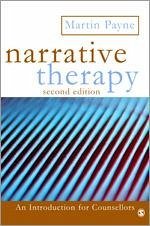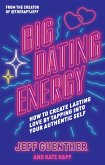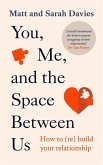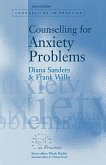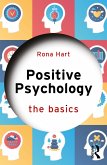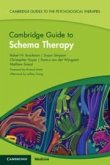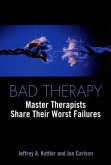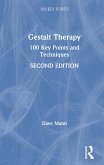`A thought provoking and interesting book that will be of interest to nurses and others supporting patients' - Accident and Emergency Nursing
`It is a relevant and timely book that will remind therapists of the importance of the telling of client's stories as an important component of the therapeutic process. Whatever approach we use, the client's story will be a part of what we work with, so a sophisticated questioning of what 'stories/narratives' are will benefit our work. This book is a good starting point for such an exploration. It's an interesting book that will appeal to counsellors ready to challenge or add to their existing approach' - Therapy Today
Narrative Therapy: An Introduction for Counsellors, Second Edition, offers a clear and concise overview of this way of working without oversimplifying its theoretical underpinnings and practices.
Narrative therapy places peoples' accounts of their lives and relationships at theheart of the therapeutic process. Its main premise is that the telling and re-telling of experience by means of guided questioning can facilitate changed, more realistic perspectives, and open up possibilities for the person seeking assistance to position him- or herself more helpfully in relation to the issues brought to therapy.
Drawing on the ideas of Michael White and David Epston, this fully revised, extended and updated second edition incorporates recent developments in narrative theory and practice, and introduces developments initiated by other narrative therapists worldwide. New material has been added around counselling for post-traumatic reactions, couples conflict and a sense of personal failure.
The book is illustrated with extensive examples of practice with individuals and couples. It is ideal for anyone on training courses in narrative therapy, and also for counsellors who wish to consider common ground between narrative ideas and their current approach.
Martin Payne is an independent therapist and trainer in Norwich, UK.
`It is a relevant and timely book that will remind therapists of the importance of the telling of client's stories as an important component of the therapeutic process. Whatever approach we use, the client's story will be a part of what we work with, so a sophisticated questioning of what 'stories/narratives' are will benefit our work. This book is a good starting point for such an exploration. It's an interesting book that will appeal to counsellors ready to challenge or add to their existing approach' - Therapy Today
Narrative Therapy: An Introduction for Counsellors, Second Edition, offers a clear and concise overview of this way of working without oversimplifying its theoretical underpinnings and practices.
Narrative therapy places peoples' accounts of their lives and relationships at theheart of the therapeutic process. Its main premise is that the telling and re-telling of experience by means of guided questioning can facilitate changed, more realistic perspectives, and open up possibilities for the person seeking assistance to position him- or herself more helpfully in relation to the issues brought to therapy.
Drawing on the ideas of Michael White and David Epston, this fully revised, extended and updated second edition incorporates recent developments in narrative theory and practice, and introduces developments initiated by other narrative therapists worldwide. New material has been added around counselling for post-traumatic reactions, couples conflict and a sense of personal failure.
The book is illustrated with extensive examples of practice with individuals and couples. It is ideal for anyone on training courses in narrative therapy, and also for counsellors who wish to consider common ground between narrative ideas and their current approach.
Martin Payne is an independent therapist and trainer in Norwich, UK.
Comments on the first edition:
'On reading Martin Payne's account I instantly had a sense of being understood. I found this particularly refreshing, as so much that is written in the name of narrative therapy doesn't at all fit with my understanding of its philosophical, ethical and political considerations. He has succeeded in representing his own voice in this, which really makes for engaging reading and accessibility of these ideas' - Michael White
'There is much here which feels of immediate relevance to the stories our patients tell us every day ... this is a wonderfully supportive and stimulating book' - Family Practice
'As a practitioner I found this book a good review of the area and most usefully, of the theory which underpins it' - Australian and New Zealand Journal of Family Therapy
'On reading Martin Payne's account I instantly had a sense of being understood. I found this particularly refreshing, as so much that is written in the name of narrative therapy doesn't at all fit with my understanding of its philosophical, ethical and political considerations. He has succeeded in representing his own voice in this, which really makes for engaging reading and accessibility of these ideas' - Michael White
'There is much here which feels of immediate relevance to the stories our patients tell us every day ... this is a wonderfully supportive and stimulating book' - Family Practice
'As a practitioner I found this book a good review of the area and most usefully, of the theory which underpins it' - Australian and New Zealand Journal of Family Therapy

